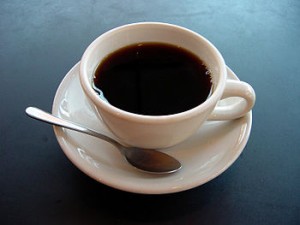Decades ago, researchers in Norway came upon an unexpected finding. Alcohol consumption was associated with liver inflammation (no surprise), but a protective association was found for coffee consumption. These findings were replicated in the U.S. and around the world. Those at risk for liver disease—who drank a lot of alcohol or were overweight—appeared to cut their risk in half if they drank more than two cups of coffee a day.
Liver cancer is one of the most feared complications of liver inflammation. Hepatocellular carcinoma is the third leading cause of cancer death, and the incidence has been rapidly rising in the United States and Europe, largely driven by the burden of hepatitis C infection and fatty liver disease. Putting together all the best studies done to date, those drinking the most coffee had half the risk of liver cancer compared to those that drank the least. Since the meta-analysis was published, a new study found that male smokers may be able to cut their risk of liver cancer more than 90% by drinking four or more cups of coffee a day. (Of course, they could also stop smoking!). It’s similar to heavy drinkers of alcohol: drinking more coffee may decrease liver inflammation, but not as much as drinking less alcohol.
Liver cancers are among the most avoidable cancers, through hepatitis B vaccination, control of hepatitis C transmission, and reduction of alcohol drinking. These three measures could, in principle, wipe out 90% of liver cancers worldwide. It remains unclear whether coffee drinking has an additional role on top of that, but in any case such a role would be limited compared to preventing liver damage in the first place. But what if you already have hepatitis C or are among the 30% of Americans with non-alcoholic fatty liver disease due to obesity, which may quadruple one’s risk of dying from liver cancer? Coffee seems to help with hepatitis C, reducing liver damage, disease activity, and mortality. It was only the lack of randomized, interventional studies on the topic that prevented us from concluding that coffee has a protective effect.
But in 2013 we got such a study, a randomized controlled trial on the effects of coffee consumption in chronic hepatitis C (highlighted in my video, Preventing Liver Cancer with Coffee). Forty patients with chronic hepatitis C were randomized into two groups: the first consumed four cups of coffee/day for 30 days, while the second remained coffee “abstinent.” Then the groups switched for the second month. Two months is too soon to detect changes in cancer rates, but the researchers were able to demonstrate that coffee consumption reduces oxidative DNA damage, increases the death of virus infected cells, stabilizes chromosomes, and reduces fibrosis, all of which could explain the role coffee appears to play in reducing the risk of disease progression and of evolution to cancer.
Is it time to write a prescription for coffee for those at risk for liver disease? Some say no: “[A]lthough the results are promising, additional work is needed to identify which specific component of coffee is the contributing factor in reducing liver disease and related mortality.” There are, after all, more than 1000 compounds that could be responsible for its beneficial effects. But that’s such a pharmacological worldview. Why do we have to know exactly what it is in the coffee bean before we can start using them to help people? Yes, more studies are needed, but in the interim, moderate, daily, unsweetened coffee ingestion is a reasonable adjunct to therapy for people at high risk such as those with fatty liver disease.
Daily consumption of caffeinated beverages can lead to physical dependence. Caffeine withdrawal symptoms can include days of headache, fatigue, difficulty with concentration, and mood disturbances. But this dependence could be a good thing: “The tendency for coffee to promote habitual consumption may ultimately be advantageous if its myriad potential health benefits are confirmed.”
More on coffee in:
•Coffee and Cancer
•What About the Caffeine?
•Coffee and Artery Function
•Coffee and Mortality
Broccoli can boost the liver’s detoxifying enzymes (Prolonged Liver Function Enhancement from Broccoli) but one can overdo it (Liver Toxicity Due to Broccoli Juice?).
What other foods might reduce DNA damage? See:
•DNA Protection from Broccoli
•Antimutagenic Activity of Green Versus White Tea
•Kiwifruit and DNA Repair
•Cancer, Interrupted: Green Tea
•Cancer, Interrupted: Garlic & Flavonoids
•Spicing Up DNA Protection
•Carcinogen Blocking Effects of Turmeric








